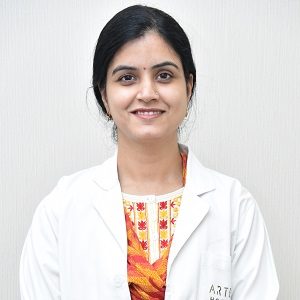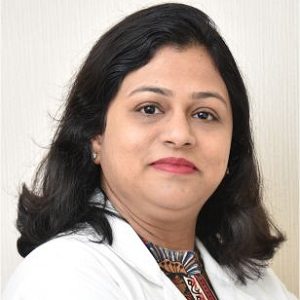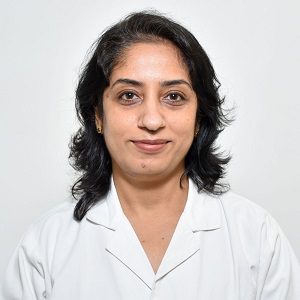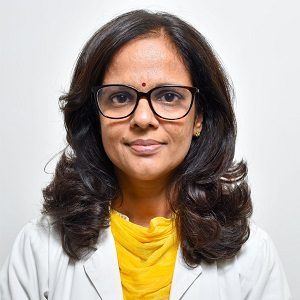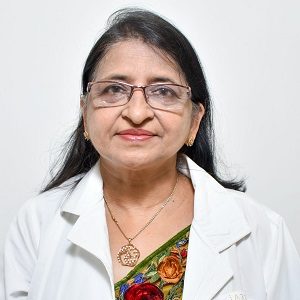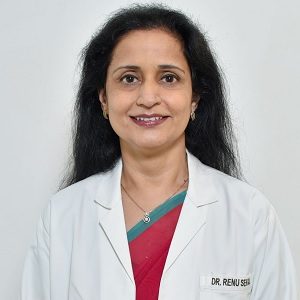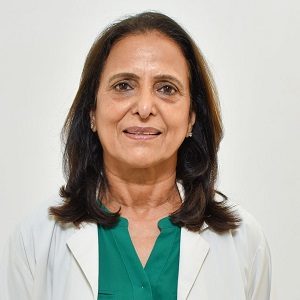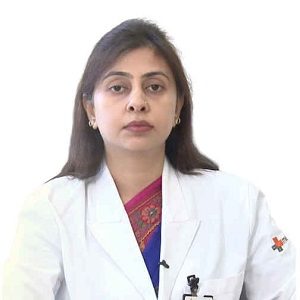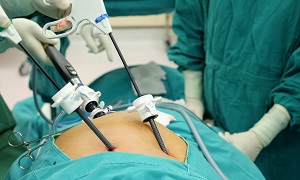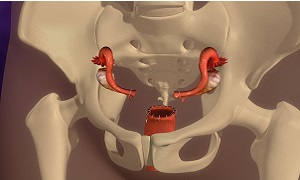Best Doctors in India for Endometriosis Surgery
- Obstetrician & Gynaecologist, Gurugram, India
- Over 17 years’ experience
Profile Highlights:
- Nidhi Rajotia is one of the best Gynecologists who has over 17 years of experience in obstetrics and Gynecology.
- She has a therapeutic focus on high-risk pregnancies, infertility treatment counseling, ovulation induction, follicular monitoring, hormonal treatment, IUI, and IVF in addition to open and laparoscopic gynecological surgeries.
- Obstetrician & Gynaecologist, Gurugram, India
- 20 years experience
Profile Highlights:
- Parvinder Kaur Arora is a renowned Gynecologist, Obstetrician & Laparoscopic Surgeon in Delhi NCR.
- She went under training in Laparoscopic surgery and Gynaec oncology.
- She completed a fellowship in minimally invasive surgery and achieved the first position in the course.
- Obstetrician & Gynaecologist, Gurugram, India
- Over 14 years’ experience
Profile Highlights:
- Dr. Pooja Bhatia Marwaha is a well-known gynecologist and obstetrician in Delhi/ NCR.
- She is proficient in the clinical and surgical management of women’s problems. Her expertise includes Antenatal and Postnatal Exercise, Cancer Screening, Breast Cancer Screening, Menopause, Pre and Post Delivery Care, and Physiotherapy.
- Obstetrician & Gynaecologist, Gurugram, India
- Over 15 years’ experience
Profile Highlights:
- Priyanka Mishra is a renowned doctor for Obstetric & Gynecological issues in Delhi/ NCR.
- She has completed MBA in Hospital and Healthcare management from NIBM.
- Priyanka Mishra has used her extensive experience to provide consultation for women’s problems and treatment.
- Obstetrician & Gynaecologist, Gurugram, India
- Over 20 years’ experience
Profile Highlights:
- Dr. Smita Vats is a dedicated gynecologist & obstetrician in Delhi/ NCR. She received extensive training in advanced gynecological endoscopy, laparoscopy, and hysteroscopy from renowned surgeons in India and abroad.
- Dr.Smita Vats is especially interested in infertility treatments, gynecologic endoscopic surgeries, high-risk pregnancy management, and adolescent and menopausal issues.
- Obstetrician & Gynaecologist, Gurugram, India
- Over 18 years’ experience
Profile Highlights:
- Dr. Asha Sharma is one of the best Gynecologists & Obstetricians in Delhi/ NCR. She practices Laparoscopic Surgery (Obs & Gyn) to assist patients with their Gynaec problems.
- The doctor provides consultations and checkups for maternal care, PCOS/PCOD, egg donation, diseases in pregnancy, irregular or excessive bleeding, and other menstrual disorders in adolescent girls, etc.
- Obstetrician & Gynaecologist, Gurugram, India
- Over 35 years’ experience
Profile Highlights:
- Dr. Nutan Agarwal is an eminent Obstetrician & Gynecologist.
- Dr. Nutan Agarwal is credited with pioneering various PCOS medications in India, such as Metformin and myoinositol.
- She has also developed several treatments, such as ablation in multiple pregnancies, and formulated a guideline for managing irregular uterine bleeding in the Indian context.
- Obstetrician & Gynaecologist, Gurugram, India
- Over 25 years’ experience
Profile Highlights:
- Dr. Renu Raina Sehgal is a renowned Gynecologist in Delhi/NCR, having 25+ years of rich experience in the field.
- Dr. Renu Sehgal specializes in obstetrics, menopause, infertility, and advanced gynecological laparoscopy and has extensive experience in several other gynecological procedures. In addition to this, she is an expert medico-legal consultancy.
- Obstetrician & Gynaecologist, Gurugram, India
- Over 40 years’ experience
Profile Highlights:
- Dr. Veena Bhat is a senior obstetrician and gynecologist. Her clinical interest lies in Endoscopic management of infertility, Adolescent Gynecology, High-risk pregnancy, Menopausal health, and Minimal invasive surgery in Gynae.
- The doctor performs Gynecological Endoscopy, both Laparoscopy & open (Hysteroscopy); Laparotomy, Endometriosis Surgery, Ovarian Cystectomy, and myomectomy with decent success.
- Gynecologist, Gynae-Oncologist, Gurugram, India
- Over 18 years’ experience
Profile Highlights:
- Dr. Dimple K Ahluwalia is one of the prominent Gynae-oncologists at Medanta-The Medicity at Gurugram in India.
- She has years of experience in treating serious and critically ill patients from different parts of the country.
- She has won numerous awards and honors for her countless contributions to the field of medicine.
Best Hospitals in India for Endometriosis Surgery
Endometriosis Surgery
Endometriosis is an ailment that causes tissue growing normally on the inside lining of the uterus to implant in other parts of the abdomen. The misplaced tissue can lead to symptoms like pain which can occur during a period, bowel movements or sexual intercourse. Having endometriosis also makes it harder for a woman to get pregnant.
Though surgery should be able to relieve your pain as well as improve your odds of conceiving, it can be difficult to know what to expect from surgery.
Purpose
Generally, two main treatments are used by doctors for endometriosis, i.e. medicine and surgery. Surgery is never considered as a first response. It is only considered when medications fail to provide you the desired results.
Surgery is also considered if you are trying to get pregnant but have not been successful. The odds of getting pregnant usually increase after the endometriosis tissue is removed.
It is important to note that you need to discuss properly with your doctor if you are considering surgery, as it is a big decision, especially if you are considering a hysterectomy, which can remove your uterus and possibly your ovaries as well. Without ovaries and a uterus, pregnancy is not possible.
Types
Two main types of surgery are used for treating endometriosis:
- Conservative surgery is for removing as much of the endometriosis tissue as much as possible. But this procedure can preserve your reproductive organs, i.e. ovaries and uterus. This procedure is generally done through small incisions, known as laparoscopy. Laparoscopy can be used for diagnosis as well.
- Hysterectomy is for treating more severe endometriosis. The surgeon first removes your uterus, as well as possibly your cervix and ovaries. If you undergo this procedure, pregnancy will no longer be possible.
Preparation
Your doctors might ask you to avoid certain kinds of medications, before your surgery. You also need to avoid smoking for as long as possible, before and after surgery.
On the day of the surgery, your doctor will advise you not to have any food or liquid for at least 8 hours before the procedure.
Your doctor might also ask you to take a laxative to empty your bowels completely before the surgery.
Procedure
Laparoscopy
The most common procedure for diagnosing and removing mild to moderate endometriosis is laparoscopy.
First, you will be given anesthesia, so that you will not feel any pain. Then your doctor will fill your belly with gas, as this will allow your surgeon to see inside your abdomen.
Next, a few small incisions will be made near your belly button. A lighted scope will be inserted into one of these incisions.
Surgical instruments are going to be inserted into one of these openings.
Using knife, heat or laser, your doctor will be removing as much of the endometriosis tissue as possible, from your organs such as the bladder, ovaries, fallopian tubes and rectum. A sample of this tissue might be sent to the lab for testing. The surgeon will also remove any scar tissue in these organs. At last, your incisions will be closed up as well.
In most cases, a patient should be able to return home the same day of the surgery.
Hysterectomy
Vaginally
The surgeon will first make an incision in your lower pelvis and remove the uterus and other reproductive organs through the incision.
Hysterectomy
The surgeon removes your uterus and your cervix through the vagina, without making any incision.
Laparoscopically
Few small incisions are made in your abdomen. Through these incisions, your surgeon will be removing your uterus and possibly your cervix.
Aftercare & recovery
You should recover faster after laparoscopic surgery than after an open hysterectomy. For the first few days, your activities might be limited after the procedure. Discuss with your surgeon when you should be able to go back to driving, working or exercise. Generally, a full recovery from a hysterectomy can take four to six weeks.
If you undergo a hysterectomy, you will not get a period anymore.
Although surgery can help in relieving pain and laparoscopic surgery can help you get pregnant. It doesn’t necessarily cure endometriosis, even if you undergo a hysterectomy. You might still experience symptoms if you have any endometriosis tissue left in your abdomen.
In around 20 to 40 percent of women, symptoms generally come back within five years. The remaining tissue can continue to grow, and it is not possible to remove every cell of misplaced tissue.
Risks
Although endometriosis surgery is generally safe, like all surgeries it may have few risks, which can include bleeding, infection, damage to any nearby nerves or blood vessels, as well as an abnormal connection between two organs in the abdomen.
If you experience any symptoms such as fever over 38 ° Celsius, redness or swelling at the incision site, heavy bleeding in your vagina or the incision site, or severe pain, then you need to contact your doctor.


